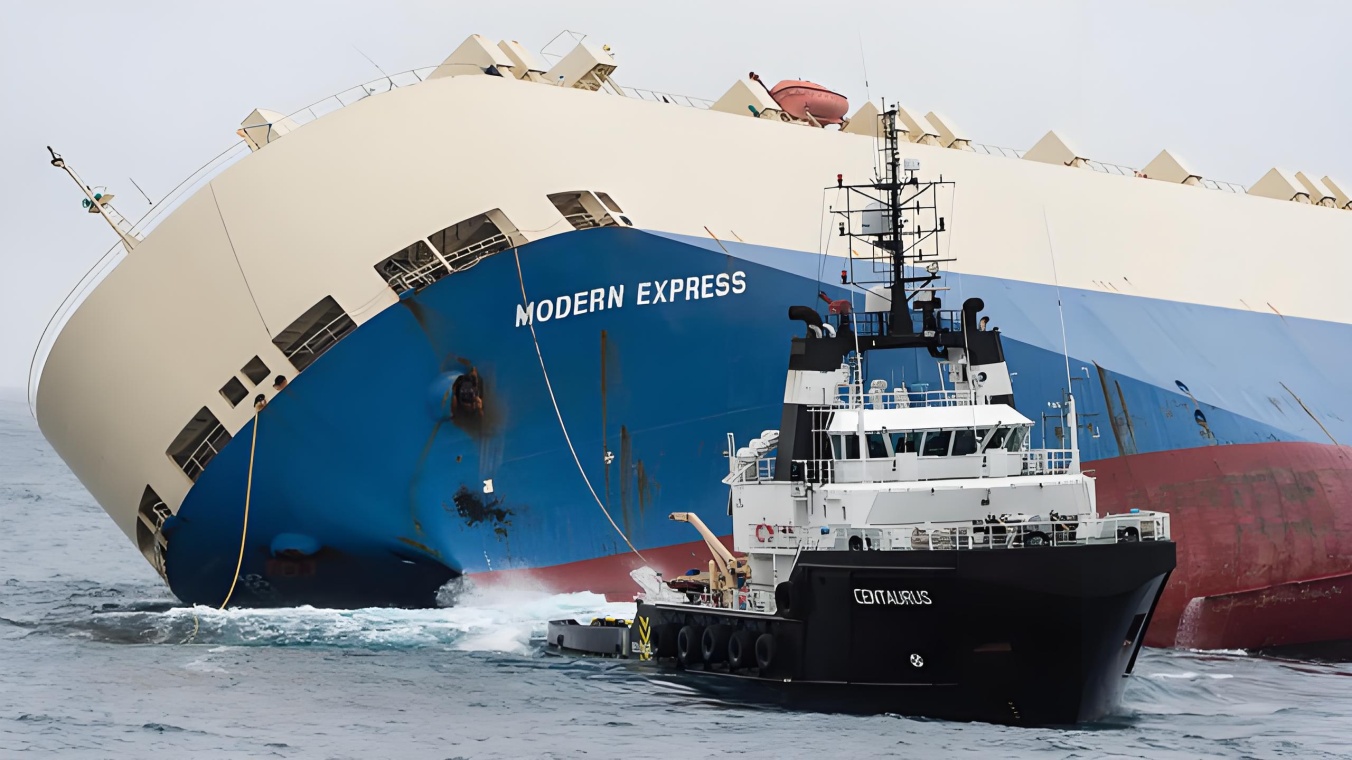
On the vast blue planet, the ocean is like a complex network of life, and the international shipping industry is like the surging vitality of the blood, playing a pivotal role in the huge body of the global economy. However, in recent days, extreme weather has emerged frequently, just like a surging undercurrent, which has brought huge shocks and severe challenges to the international shipping industry.
Extreme weather is undoubtedly the roar of nature's anger, but also a powerful warning of the imbalance of the earth's ecology. Violent storms, hurricanes, typhoons, heat waves, cold waves and other extreme meteorological phenomena, in different seas and different periods of time continue to stage, like a thrilling disaster. The world in 2024 seems to be locked in a fierce struggle against extreme weather. On the evening of September 1, tropical storm "Capricorn" hit the Philippines, causing the suspension of shipping in its eastern and central ports; The Panama Canal, affected by the ongoing drought, has imposed restrictions on shipping since July 30, allowing only 32 ships a day to pass through September, resulting in a loss of $200 million in canal revenue. Japan has been affected by typhoons since August, and many ports have suspended shipping.
Extreme weather poses a major threat to the safety of ship navigation. The wind and waves are like a ferocious giant beast, which may engulf the ship at any time. Strong winds can cause a ship to lose control, deviate from its intended course, and even face the terrible danger of capsizing. Heavy rains can greatly reduce visibility, making it difficult for crews to accurately judge their surroundings and the position of other ships, increasing the risk of collision. For example, during the crazy typhoon season, those unfortunate enough to be in the path of the typhoon must race against the clock to take shelter measures, or they will face disaster. In order to ensure safety, ships often have to change their routes, which will not only extend the sailing time, increase the consumption of fuel, but also most likely lead to cargo delays, which will bring huge economic losses to shippers and traders. At the same time, extreme weather may also cause serious damage to the ship's machinery and equipment, which will affect the normal operation of the ship.
Extreme weather caused severe damage to port facilities. Strong winds such as hurricanes and typhoons can easily destroy port cranes, dock facilities and storage equipment. Heavy rains and flooding can inundate port areas and damage electrical systems and drainage facilities. These disruptions will not only have an impact on the normal operation of the port, but may also lead to a backlog of cargo and difficulties in loading and unloading. As an important node of the international shipping industry, once there is a problem, it will cause a chain reaction and seriously affect the smooth flow of the entire supply chain. If a major port is forced to close due to extreme weather, a large number of ships cannot be berthed and cargo cannot be loaded and unloaded, which in turn has a significant impact on the flow of global trade.
Extreme weather has had a profound impact on the shipping market. Frequent extreme weather events drive up the cost of shipping. In order to cope with extreme weather, ships need to increase fuel consumption, purchase insurance, and carry out repairs and maintenance, which undoubtedly increase operating costs. At the same time, cargo delays and port closures will also lead to market supply and demand imbalances, and freight fluctuations will increase. In addition, extreme weather can trigger trade restrictions and sanctions. Some countries may take trade protection measures to restrict the import and export of certain commodities because of the adverse impact of extreme weather on their agriculture and industry, which will further affect the development of the international shipping industry.
Facing the severe challenges of extreme weather, the international shipping industry is not without solutions. On the one hand, the continuous progress of science and technology has provided more effective countermeasures for the shipping industry. Modern ships equipped with advanced weather forecasting systems, navigation equipment and communication technology can obtain extreme weather information in time and take preventive measures in advance. At the same time, the design and construction of ships are continuously improved to improve their ability to withstand wind, waves and extreme weather. On the other hand, the international community is strengthening cooperation to jointly address the challenges posed by extreme weather. Governments, shipping companies and international organizations have taken actions to strengthen meteorological monitoring and early warning, formulate emergency plans and improve emergency response capabilities. At the same time, it is actively promoting sustainable development, reducing greenhouse gas emissions, mitigating climate change, and fundamentally reducing the frequency and intensity of extreme weather.
In this era full of challenges and opportunities, the international shipping industry must bravely face the severe test of extreme weather, actively take countermeasures, and constantly innovate and develop. Only in this way can we continue to forge ahead in the turbulent waves and make greater contributions to the prosperity and development of the global economy. Let us hope that the international shipping industry can write a more brilliant chapter in the fight against extreme weather.

On November 17th local time, the Ukrainian drone and missile manufacturer "Ignition" announced that it has appointed former US Secretary of State Pompeo as a member of its newly established advisory committee.
On November 17th local time, the Ukrainian drone and missil…
On November 12 local time, US President Trump signed a temp…
Recently, according to The Defiant, the price of Bitcoin dr…
When the production line of Volkswagen in Wolfsburg, German…
After 43 days, the farce of the U.S. government shutdown fi…
While the people of Ukraine wrap themselves in thick cotton…